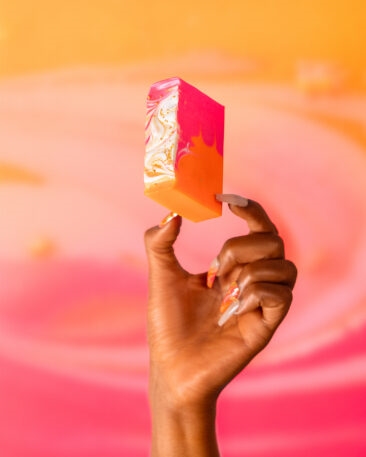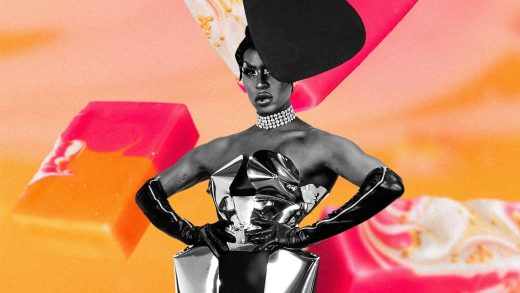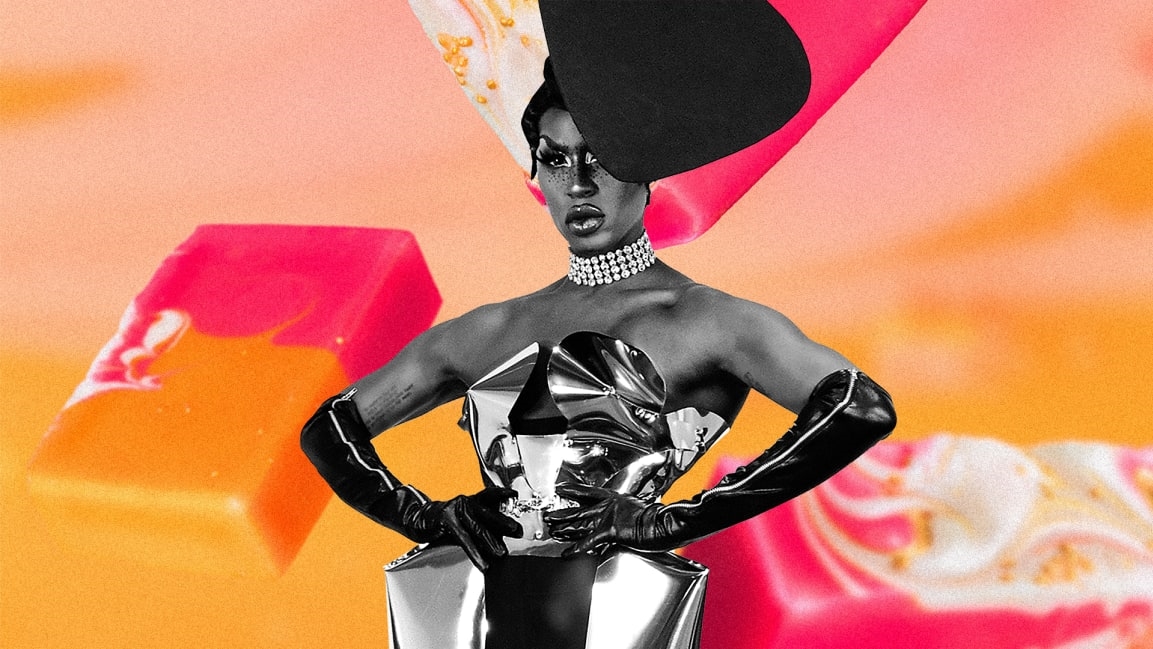How drag queen Shea Couleé is pushing her brand from soap and beer to (hopefully) Marvel
It’s been a year since Shea Couleé was crowned the winner of RuPaul’s Drag Race: All-Stars season 5. It seemed the Chicago-based queen wouldn’t need the validation of hitting the main stage a second time after her star-making run on her original season that took her all the way to the finale.
But her season 9 defeat was precisely why she needed All-Stars—for her artistry and her role as CEO of her business. “It allowed me to trust myself and be more confident in the fact that I don’t have to try and do and be anything that I’m not,” Couleé says. “Being able to be vulnerable and open about my experiences and owning my truth are all things that I needed to learn by going through the experience I had season 9 and then going back on All-Stars.”
Couleé is now leveraging that confidence by pushing her brand into new spaces.
“[After All-Stars], I definitely wanted to find ways that I could branch out and bring my fans closer to my mind and the way that I create and see things,” Couleé says. “We’re trying new and different things all through the lens that is Shea Couleé.”
For example, last year Couleé teamed with Goose Island Beer Co. to launch her own brew: Shea Coul-Alé. The success of that partnership led to Couleé dropping another flavor with the brewery this past June.
Wine and liquor brands have a decent track record of collaborating with drag queens. Skyy Vodka and Bright Cellars have worked with Trixie Mattel in campaigns and brand deals. Smirnoff tapped Alyssa Edwards for its 2021 Pride push. Absolut Vodka was an early sponsor of Drag Race and often included queens from the show in its ads.
But it’s been rare for a queen, particularly a Black queen, to work with a beer brand.
“I wanted to do the beer collaboration because it was so unexpected. As anyone who’s ever felt othered, when you start to find your tribe and people who have similar interests, it can become a little bit of a cultural bubble. Beer enthusiasts was a culture that exists in a separate bubble outside of drag culture,” Couleé says. “So I wanted to try and have a little bit of crossover appeal.”
Couleé has seen that appeal play out on a personal level.
“My partner Dan, his straight brother, and his beer enthusiast friends were excited about it,” she says. “Seeing a crowd that doesn’t watch Drag Race or partake in a lot of the cornerstones of our culture, they could still get behind a drag queen peddling them beer. That showed me we were on the right path.”
This month, Couleé also launched her own line of soap with the Chicago-based artisanal brand The Quiet Girl Shoppe. Couleé has partnered with major cosmetic and skincare brands, such as Lush Cosmetics, in the past. But The Quiet Girl Shoppe was an opportunity not only to create her own product, “The $100,000 Bar” (a play on the cash prize from winning All-Stars), but also to use her platform to help surface a smaller, local company.
“It’s a Black, female-owned business; where they produce the soap is literally just miles away from where I grew up. I felt that connection with them,” Couleé says. “It’s been important to align myself with brands that I want to incorporate into my brand as well.”

Outside of brand deals, Couleé is thinking bigger picture of how she wants to center drag—like MCU-size bigger.
“I definitely would love to be cast as Darkveil in a Marvel film, the first drag queen to make an appearance in the Marvel Universe,” Couleé says. “And she was based off of me.”
Darnell Wade, aka Darkveil, first appeared in the 2018 comic Iceman #4 and was co-created by illustrator and writer Sina Grace, who has said the character was inspired by many Drag Race queens, including Dax Exclamation Point, The Vixen, Monet X Change, and, of course, Couleé.
“Considering the massive success of RuPaul’s Drag Race, Shangela and Willam’s roles in A Star Is Born, and FX’s award-season darling Pose, drag queens and ball culture felt very much ingrained in mainstream pop lexicon,” Grace wrote in an essay. “I was brought on to tell a story through my lens, and I had no clue just how starved readers were for that authenticity. So that’s why LGBTQ+ creators should be hired to make myths!”
And why they should be hired to play those parts.
“I would absolutely live,” Couleé says if cast as Darkveil. “I know in my heart of hearts, if given the opportunity, that Shea Couleé could deliver some of the most iconic fight choreography that we have seen.”
In continuously elevating her drag and managing (and manifesting) the opportunities that arise with that, Couleé has had to learn how to communicate her vision effectively.
“Being the CEO of this brand, it [makes me] really vulnerable because I have to be able to communicate my dreams with people—and that’s not something that’s easy,” Couleé says. “You’ve got to trust people that when you speak about these things, they are going to go forward and, however they can, help facilitate those opportunities.”
To that end, Couleé is wholly aware that trust has to run in both directions.
“I definitely have my walls up when it comes to my drag. A lot of times, people want to repeat back to you how they see you. I don’t want you to tell me the way you see me. I want you to listen to me so that you can hear the way that I see myself,” Couleé says. “I really don’t want outside influences conflicting with my artistry. And that’s not to say that I’m not open to outside ideas, because I love collaboration. But I think everyone has to approach it with a sense of humility and know that, ultimately, their biggest goal is to help grow the Shea Couleé brand.”
“That even requires me to humble myself and understand that there are other people on the team that sometimes have better, stronger ideas than mine,” she continues. “But it’s not ever coming from a place of ego. It’s just because we want to see this brand grow to its fullest potential.”
Fast Company , Read Full Story
(59)



